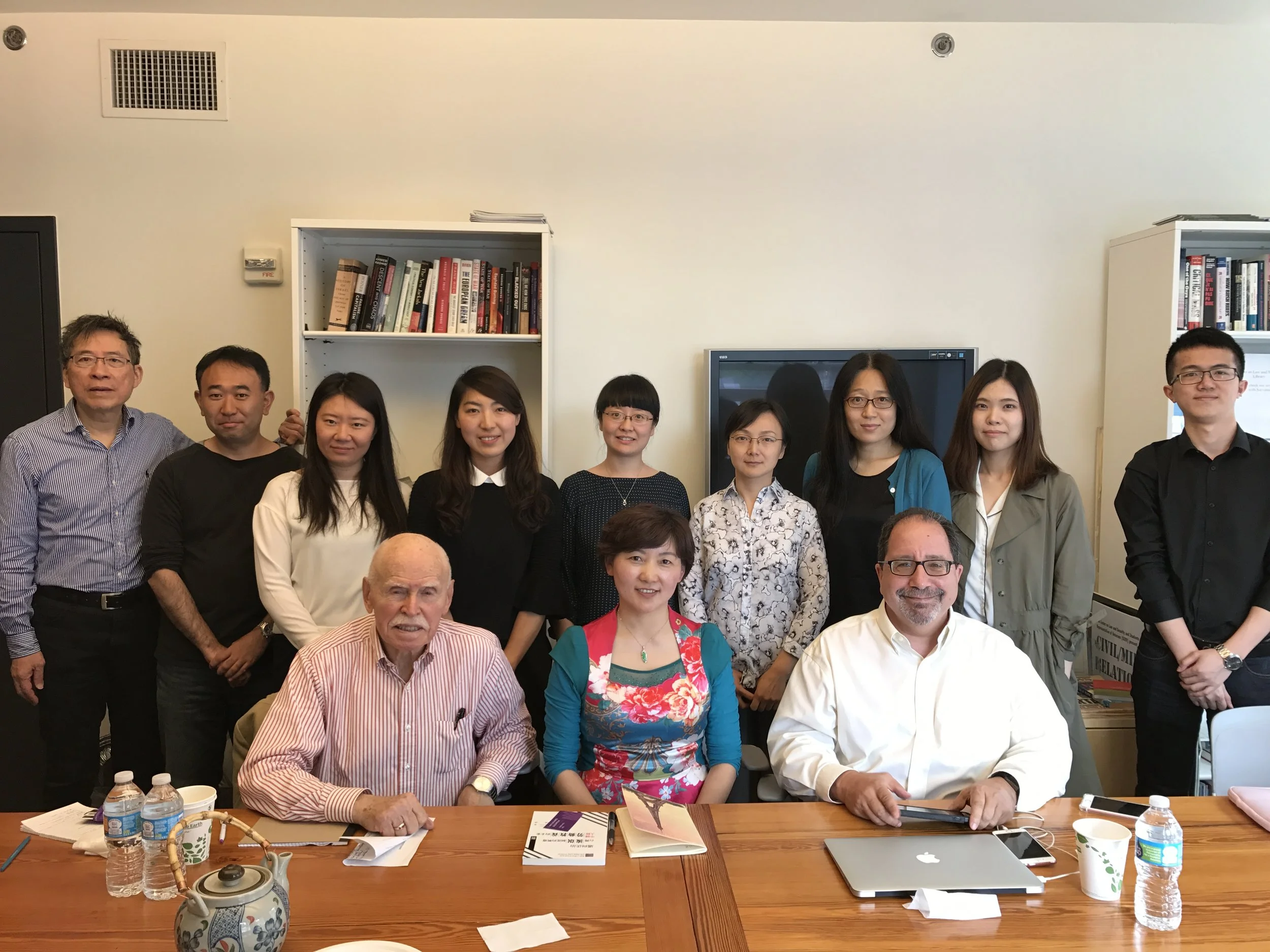Dear Friend,
As we begin the New Year, we at the U.S.-Asia Law Institute would like to express our gratitude for your continued support. We would also like to take this opportunity to provide a brief synopsis of our activities over the past year. 2016 has been a wonderful and ambitious time at the U.S.-Asia Law Institute!
We began the year auspiciously, welcoming labor law expert Mr. Huang Leping as a Visiting Scholar for the month of February. While at NYU he studied the U.S. legal system, meeting with judges, scholars and other individuals in mutually beneficial legal exchanges. Please follow this link for more information on Mr. Huang Leping's time at the U.S.-Asia Law Institute.
Spring blossomed on a high note in April with an immensely popular public dialogue with Joshua Wong, Hong Kong Umbrella Revolution Activist. He spoke about the foundation of the student activist group Scholarism in 2011, which was heavily involved in the protests against the introduction of Moral and National Education into Hong Kong school curricula in 2012. Please click here for coverage on the public dialogue with Joshua Wong.
In March, we welcomed Ms. Masako Mori, Minister of Women's Empowerment and Child-Rearing in Japan, for one of our weekly lunch dialogues. In total, we held over 33 weekly lunches hosted by USALI Faculty Director Jerome A. Cohen. We also coordinated 20 special events including a conversation with Jenny Yang, Chair of the U.S. Equal Employment Opportunity Commission (EEOC), and welcomed many visiting delegations including one from East China University of Political Science and Law, led by ECUPL’s President, Professor Ye Qing. Please click this link to find out more about East China University of Political Science and Law's visit to the U.S.-Asia Law Institute. Throughout the year, Professor Cohen and USALI-affiliated scholar, NYU Adjunct Professor Peter Dutton of the U.S. Naval War College, also convened multiple meetings and roundtable discussions concerning the UN Convention on the Law of the Sea and the disputes in the South China and East China Seas, both anticipating and then analyzing the Philippines arbitration decision handed down July 12, 2016.
Over the summer we kept busy with our institute projects and finalizing the details for our forthcoming bilingual publications on best practices to avoid false confessions during police interrogation and protecting individual’s rights during pre-trial release and detention decision-making. Keep an eye on our website in the New Year for updates. We also began preparations for our workshops in China on criminal justice, labor law, anti-discrimination law and professional responsibility for lawyers, scheduled for December 2016 and January 2017.
We spent a productive October with a group of Chinese visiting scholars to share experiences relating to wrongful convictions in the United States, China, Japan, Korea and Taiwan. Meetings with experts from the U.S. Innocence Project, as well as the University of Virginia and the University of Michigan, proved an excellent opportunity for U.S. and Asian experts to learn about how to prevent and redress wrongful convictions. One of the highlights of the visit was a tour of New York City’s state-of-the-art DNA laboratory. Also in October, USALI-affiliated scholar Aaron Halegua published a major report on labor rights in China. Based on over 100 interviews, observations of legal proceedings, and extensive documentary research, Who Will Represent China’s Workers? Lawyers, Legal Aid, and the Enforcement of Labor Rights examines the legal violations suffered by workers, the range of legal service providers, and how workers fare in litigation.
In November, we held our 22nd Annual Timothy A. Gelatt Memorial Dialogue on the Rule of Law in East Asia. This year we focused on the recent Philippine arbitration award and invited maritime law experts from several countries to participate. USALI-affiliated scholar Professor Peter Dutton and Visiting Scholar Isaac Kardon, both of the U.S.-Naval War College, helped to steer this fascinating dialogue. Please follow this link to watch the entire 22nd Annual Timothy A. Gelatt Memorial Dialogue on the Rule of Law in East Asia.
December and January have brought a series of activities, meetings, and workshops in China for the Institute. With experts including Professors Sida Liu, Randy Hertz, Paulette Caldwell, Cynthia Estlund, Erin Murphy and Brandon Garrett, we held legal exchanges with Chinese experts at Chinese law schools on labor law, anti-discrimination, professional responsibilities of lawyers, and criminal justice.
Lastly, this year also saw many changes at the Institute. Having completed her JSD degree at NYU, Research Scholar Ms. Yu-jie Chen became a Visiting Scholar at Columbia University’s Weatherhead East Asian Institute, while continuing her collaboration with Professor Cohen and other USALI scholars on the role of human rights in China-Taiwan cross-strait relations, a project sponsored by the Smith Richardson Foundation. Program Assistant Jean Lee left us to enroll in Harvard Law School. We expect great things from her. In August, we welcomed Ms. JoAnn Kim as Program Assistant, and she has been doing a wonderful job coordinating Institute logistics and weekly lunches. This December we also bade farewell to Administrative and Program Director Trinh D. Eng. Trinh joined USALI in 2011, and her guidance has been instrumental in helping USALI to grow into the organization it is today. We are sad to see her go, but happy to know that she will still be in the NYU family, just a few short blocks away. Mr. Eli Blood-Patterson (J.D. ’14) took the helm of Program Manager this December, and has hit the ground running. Come January, we expect to welcome Mr. Allen Clayton-Greene (LLM ’14), as a Research Scholar.
As we begin 2017, we remain committed to our mission to promote constructive engagement with Asian partners to advocate for legal reform in Asia and the United States. This goal can only be accomplished with the support and active participation of our colleagues and friends around the globe. Please consider making a gift to the U.S.-Asia Law Institute.
With your continued support, we look forward to another successful year!
Warm regards,
Ira Belkin
Executive Director
U.S.-Asia Law Institute





